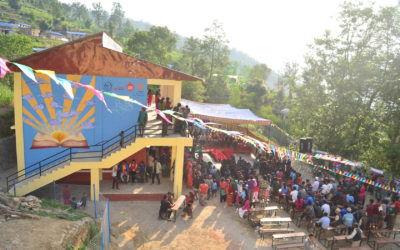Ian Wood is an avid football fan who regularly visits Anfield to watch his beloved Liverpool.
However, Ian is visually impaired due to a condition known as mitochondrial dysfunction, which means his sight is only good at short range and large, high-contrast images.
So when Ian goes to games, he cannot see further than a few inches. Instead, he soaks up the atmosphere from the touchline and follows the match with
radio commentary.
Ian approached Remap, a UK charity with skilled volunteers who custom-make equipment for disabled people, helping them to achieve independence and a better quality of life. And he asked them: “Can you help me see the football?”
Step forward Rupert Powell from Remap York who, with amazing ingenuity, built a virtual reality headset with a zoom camera mounted on top. Now Ian can follow the action wherever he points his head, and this is presented on the screen.
He can zoom in, he can freeze the action, and there are special filters to make it easier for his vision to follow what is going on. Now, Ian has the best view in the whole ground.
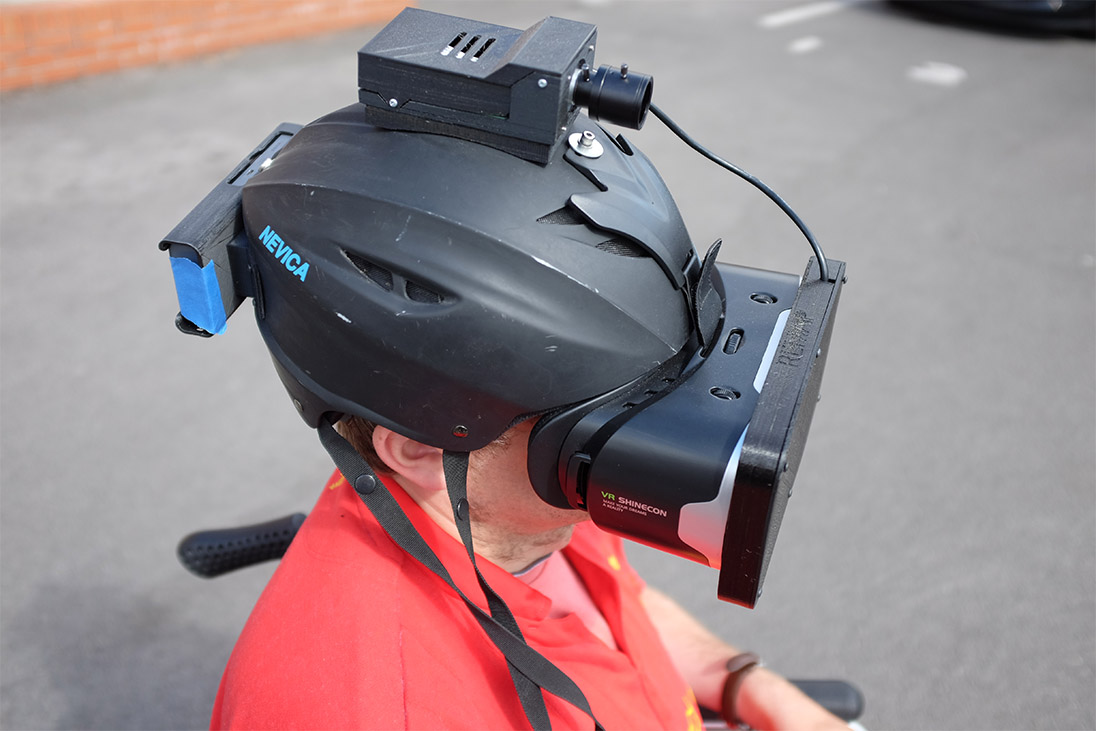

Ian’s newly built virtual reality helmet means he can watch his beloved Liverpool despite his visual impairment.
Rupert is one of nearly a thousand volunteers who are skilled with their hands, making and designing devices which can enhance people’s lives.
Remap was formed in 1964 by Pat Johnson an engineer who worked at the Teesside plant of the chemical company, ICI.
Pat’s sister had contracted polio as a child which presented her with physical problems managing day-to-day life.
Quite a few of our volunteers are Rotarians, and sometimes we find that Rotary clubs are in touch which the sort people who we can help.”
Wheelchair-bound, she had upper body movement, but as a widow she relied on her children and neighbours for help.
She even needed help getting her wheelchair down the steps to go to the shops.
Pat decided to do something about this and put in a wooden ramp to his sister’s front door. He also installed an electric hoist with a runway above the hall and bathroom of her bungalow.
We help people do things they love to do but are prevented because of some impairment that stops them from taking up their hobbies.”
His sister was overjoyed with the ramp and hoist, as they gave a level of independence she had never enjoyed before.
Pat was so impressed with the huge change this relatively simple solution had made to his sister’s life, that he resolved to bring similar changes to other people’s lives.
That sparked the concept of Remap, as other engineers became involved to develop the idea further.
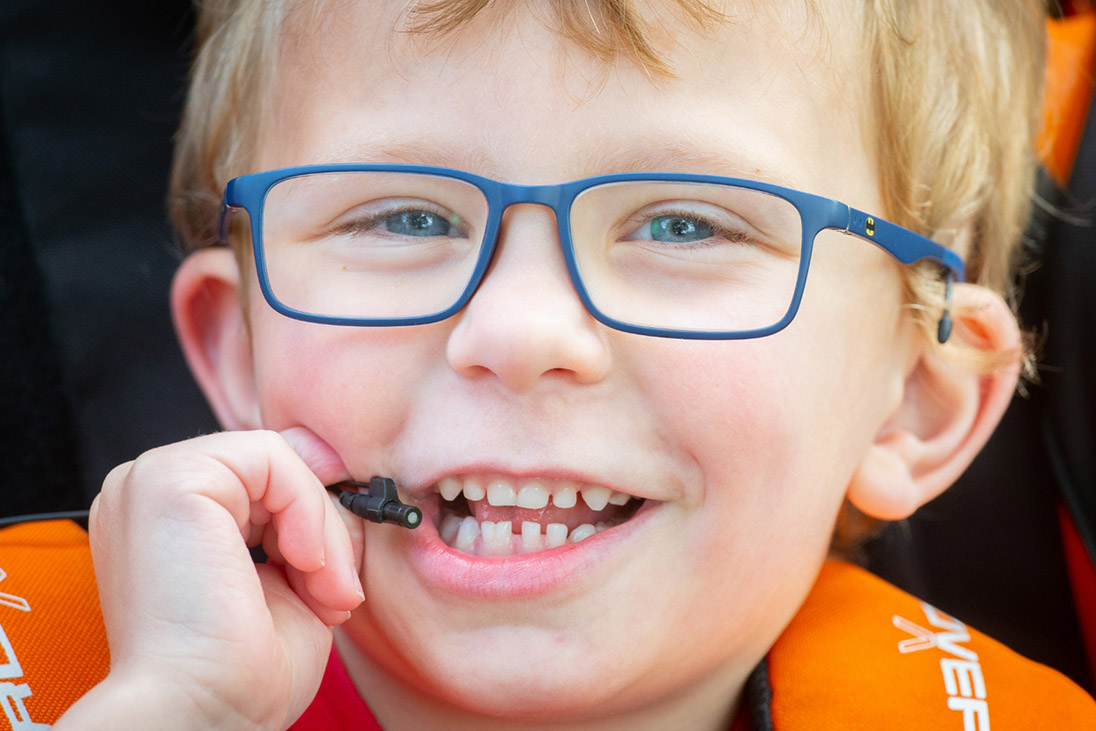

5-year-old James has vocal cord palsy, which means his voice is very quiet. His new voice amplifier, courtesy of Remap, means he can be heard in the classroom, during car journeys and when there is lots of background noise. Read James’ story.
And Remap has grown steadily, now helping more than 3,500 people across the UK to become more independent.
David Martin, Chief Executive of Remap, said they had a network of 70 groups of volunteers spread across the country. “A lot of them are engineers, some are technicians, people who are skilled with their hands making and designing things,” he said.
“We do 3D printing, electronics, all sorts of things. We take all-comers.”
“What Pat Johnson did in the 1960s was to install ramps and hoists. Now a lot of that is available from the NHS and social services help.
“So we now focus less on those basics, but concentrate on helping people with quality of life.
“We help people do things they love to do but are prevented because of some impairment that stops them from taking up their hobbies, sports or activities they enjoy.”
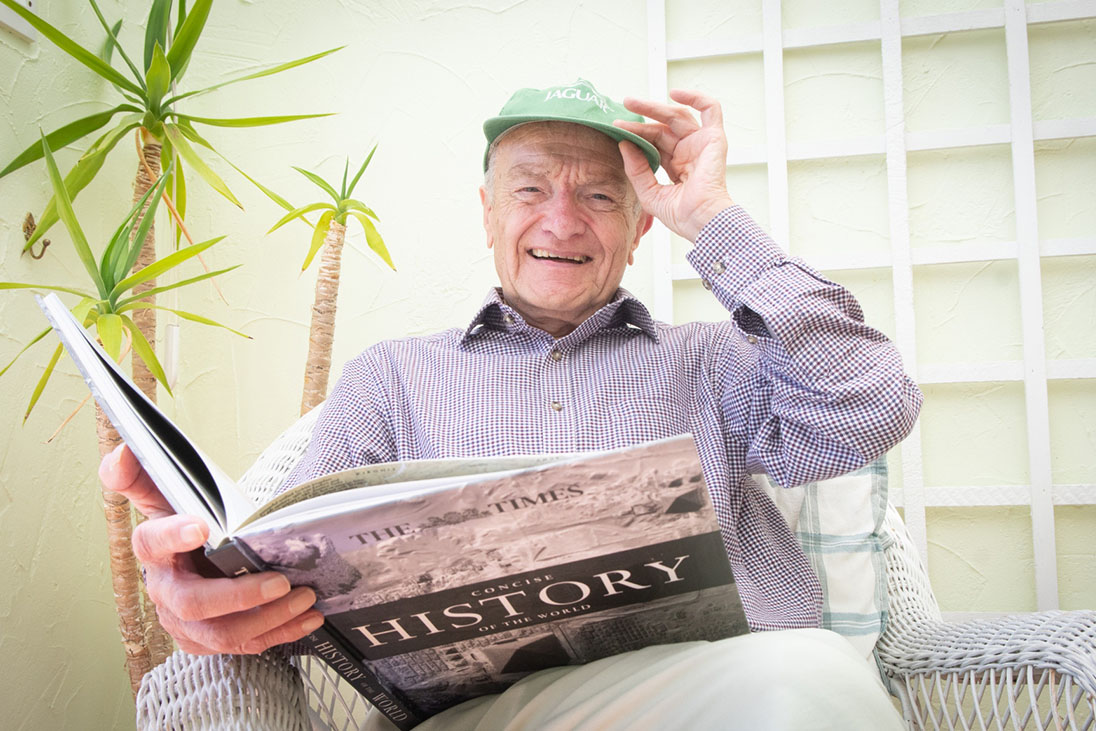

Chris has motor neurone disease, which means his neck muscles struggle to keep his head upright. A simple strap fitted from his belt to his hat, providing the support to keep his head positioned upright. The device makes driving, gardening and even reading so much easier. Read Chris’ story.
For example, a Remap volunteer helped Linda, a music teacher recovering from breast cancer.
She needed support for her wrist while playing the piano, so he made a little device which she can rest her wrist on and which runs silently in front of the keys.
Lorna, pictured at the start of this article, is wheelchair-bound and has a canine companion, who does all sorts of things for her. She wished she could throw a ball for her dog, so Remap volunteers built a catapult contraption which fits to her wheelchair which allows her to fire a tennis ball across the park.
The cost of each project varies in scale. Some are quite simple, made from materials which are easy to come by and don’t cost much. Other projects can be more complicated, with parts which have to be sourced, such as the virtual reality headset which cost around £600 to build.
All recipients receive the gadgets free of charge. Some choose to make a donation in return, but most of Remap’s funding comes from grants and bigger donations.
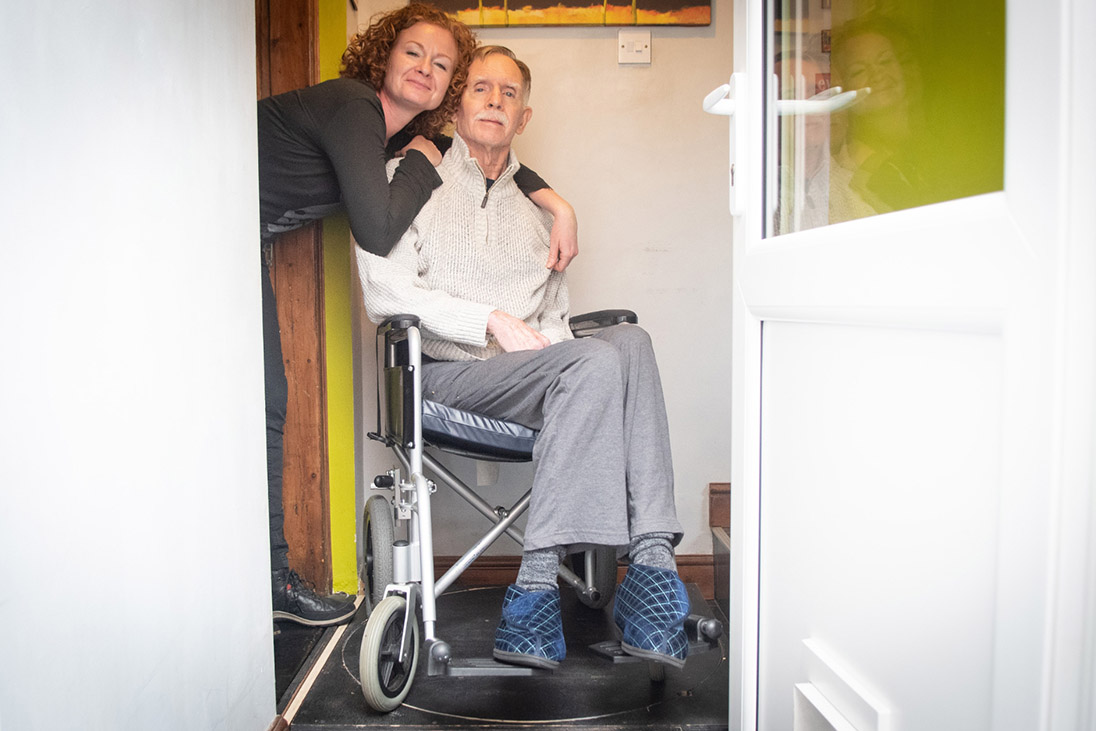

Stroke survivor Robert wasn’t able to manoeuvre out of his terraced house in his wheelchair. But a simple but ingenious ‘turntable’ means that Robert can easily get access in and out the house despite the narrow angle. Read Robert’s story.
Amazingly, it costs the charity less than £250,000 a year to operate, built around 1,000 volunteers who donate their time.
“We take a pride in being able to give the equipment free of charge whether it has been cheap or expensive to develop,” said David.
Referrals to Remap come from occupational therapists, as well as from various disability charities and private individuals.
And the charity’s work has been supported by numerous Rotary clubs who have forged partnerships with their local Remap groups across the country.
“There is a crossover of membership,” added David. “Quite a few of our volunteers are Rotarians, and sometimes we find that Rotary clubs are in touch which the sort people who we can help.
“They might be fundraising to support the family of a disabled child, for example, and we can sometimes help that family by making some gadgets around the home to make their life easier.”
If you know someone Remap can help, could fundraise for them, or would like a presentation from your local group contact them via their website.









